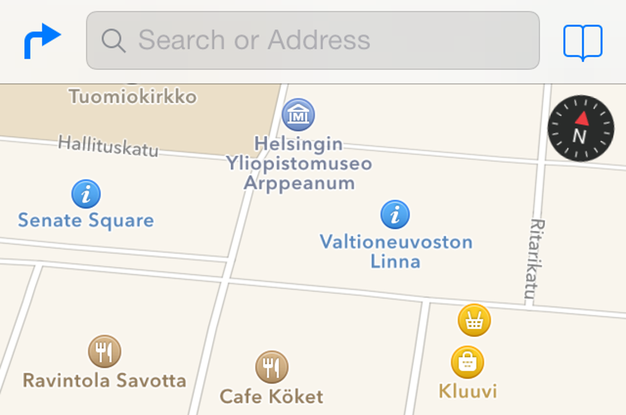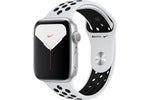Locationary Apple
Locationary Apple 9,8/10 6619 votes

Jul 19, 2013 Apple is facing stern competition from market incumbent Google in the online mapping tools market but from now on it is getting help from a Canadian big-data startup, Locationary. On Friday it was reported by AllThingsD that the Toronto bcompany had been snapped up by Apple for an undisclosed amount. Is an American multinational corporation that designs and manufactures consumer electronics and software products. It was established in Los Altos, California, on April 1, 1976, by Steve Jobs, Steve Wozniak, and Ronald Wayne, and was incorporated on January 3, 1977. Apple recently inked a deal to acquire crowdsourced location data company Locationary, according to All Things D. An Apple spokesman confirmed the deal, saying in a statement published by ATD that. Jul 19, 2013 According to a new report, Apple has acquired Toronto-based Locationary, a Canadian startup that provides crowdsourced location data, for an unknown amount. The deal, which has already closed, includes both the company’s tech and team.
In its quest to build its mapping and navigation capabilities into something able to take on Google Maps, Apple has reportedly acquired yet another company, Locationary, that deals in location data.
An Apple spokesperson confirmed the buy with AllThingsD. Locationary’s main product is a cloud-based platform called Saturn, which allows businesses to blend data from multiple sources into a composite profile that can be easily shared with others. Locationary claims that Saturn makes it easy to bring together internal and external data sources, lowering the costs and errors associated with data integration; it’s positioned this as ideal for firms looking to not only lower the expense of business data-processing, but also improve the quality of marketing campaigns and business-location data.
Why is that sort of thing potentially useful for Apple? Because people like it when the business data in their mapping application is at least somewhat accurate. In theory, it could have Locationary’s software unite a variety of databases in order to precisely map out business locations, while weeding out all sorts of duplicates and outdated data.


In September 2012, Locationary CEO Grant Richie wrote a long column for TechCrunch that laid out Apple’s mapping issues, with a focus on business listings, and suggested (predictably) that the solutions lay in data aggregation. “For complete coverage, Apple would need to bring in two or three horizontal (core) databases for each country,” he explained. “For example, in the United States, a few commercial providers like Localeze, InfoGroup, Axciom, and Compass provide core data on approximately 15 million businesses.”
Once Apple had those databases, he added, it would need to process the information into a common format, standardize the categories for various businesses, and eliminate duplicate listings by matching business profiles to real-world places. “Unfortunately for Apple, matching is time-consuming to analyze data, identify exceptions and improve the system,” he wrote. “It requires a complex algorithm that needs profile details, crowdsourced info, and machine learning and reporting tools. Many parts need to be resolved in sequence so it isn’t a task where 30 developers will finish 30 times sooner than one developer.”
Locationary Apple Orchards

Data integration is a complicated process, he concluded: “This is why the industry will need proper platforms and tools to address these challenges.” It looks like Apple decided that Locationary had the right platform.
Before the release of iOS 6 in September 2012, Apple relied on Google-generated data for its mapping app. But its relationship with Google has become increasingly tense over the years, which perhaps drove Apple to finally dump the search-engine giant’s mapping data in favor of its own, homegrown solution with iOS 6—something that quickly led to bad publicity, as those downloading the operating system to their iPhones and iPads began to complain about inaccurate directions and geographical weirdness.
The criticism grew to the point where Apple CEO Tim Cook had to post an apology on the company’s Website. “At Apple, we strive to make world-class products that deliver the best experience possible to our customers,” he wrote at the time. “With the launch of our new Maps last week, we fell short on this commitment. We are extremely sorry for the frustration this has caused our customers and we are doing everything we can to make Maps better.”
In that apology letter, Cook even suggested that frustrated iOS users could rely on alternate maps apps. Apple’s subsequent damage control featured its executives talking to Foursquare Labs and other companies about the possibility of injecting more mapping data into iOS—and making bids for startups with next-generation software tools.

Locationary Apple Cider Vinegar
Image: Apple